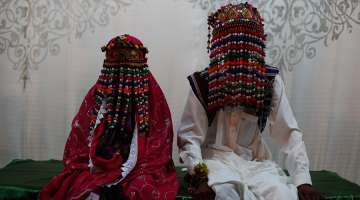A special court in Delhi has observed that there is a “clear conflict” between the Muslim personal law and the provisions of Protection of Child from Sexual Offences (POCSO) Act.
The observation came during the hearing of the case of an 18-year-old Muslim man who was facing charges of rape and kidnapping under sections of POCSO Act after he married a 15-year-old Muslim girl.
Acquitting the man, Additional Sessions Judge Vinod Yadav said that as per POCSO, the minor girl was a “child not capable of giving consent for her marriage and consummation thereof ” but “her personal law clearly authorises her to go ahead and get married at that age”.
The youth was also accused under Section 6 of POCSO — punishment for aggravated penetrative sexual assault.
“Therefore, a clear conflict is apparent between the Muslim Personal Law and the provisions of the Act with regard to the marriage of a Muslim girl. The Act treats her as a child not capable of giving consent for her marriage and consummation thereof whereas her personal law clearly authorises her to go ahead and get married at that age. The Parliament probably did not foresee the aforesaid issue,” ASJ Yadav was quoted by The Indian Express as saying.
In this case, an FIR was filed under sections of POCSO Act based on a complaint by the girl’s mother who said that the boy had enticed her daughter and taken her away.
Following the complaint, the police slapped charges of rape, kidnapping and sexual assault under the POCSO Act.
After the victim girl recorded her statement before the Magistrate, she did not go with her mother and was, instead, sent to Nirmal Chhaya, a children’s home in Delhi.
“Before proceeding to analyze the rival contentions, it has to be borne in mind that the accused as well as the prosecutrix are Muslims. It is a fact that under the Muslim Personal law with which the accused and prosecutrix are governed permits them to contract a valid marriage provided the prosecutrix had attained the age of puberty. The prosecutrix had definitely attained puberty, as is evident from her MLC which shows that she had her last menstrual period 20-25 days back,” stated the court.
As per Muslim Personal Law, a Muslim girl is entitled to marry a person of her choice without seeking the permission of her parents after completing the first menstrual cycle.
The court further stated that the POCSO Act was enacted to ensure that children of tender age are not abused and their childhood and youth are protected against exploitation, and also that they are “given facilities to develop in a healthy manner and in condition of freedom and dignity”.
The court observed that at “at no point the accused had ever used any kind of force against the prosecutrix”.
“If, everything had happened with the sweet will of the prosecutrix then can the accused be held guilty of committing sexual assault upon her in the teeth of the admission made by the prosecutrix as well as the accused?” the court observed.
Latest India News
